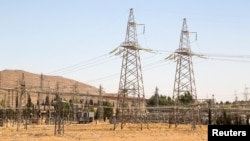The United States has eased restrictions on humanitarian aid to Syria to help the Syrian people at a time of political transition.
Syria became one of the most sanctioned countries in the world in response to the brutality of former President Bashar Al-Assad, who ignited a horrific 13-year civil war by his brutal repression of anti-government protests. On December 8, his rule ended as Islamist rebels, spear-headed by the group Hayat Tahrir al-Sham, or HTS, swept into Damascus, driving Assad into exile. In the weeks following, HTS, which was once aligned with al-Qaida, has set up a de facto interim government.
On January 6, the U.S. Treasury Department announced it was issuing a general license for certain activities and transactions in Syria. “This action underscores the United States’ commitment to ensuring that U.S. sanctions do not impede activities to meet basic human needs, including the provision of public services or humanitarian assistance. This authorization is for six months, as the U.S. government continues to monitor the evolving situation on the ground,” the Treasury Department said in a statement.
Most U.S. sanctions against Syria remain in place, although the United States has dropped its offer of a monetary reward for HTS leader Ahmad al-Sharaa, also known as Mohammad al-Jawlani. Western officials, including from the United States, have met with al-Sharaa, and urged that his de facto government be responsive to the needs and rights of all Syrians. In December, President Joe Biden cautioned that Syria’s new leaders have “their own grim record of terrorism and human rights abuses.” And he declared, “[T]hey’re saying the right things now, but as they take on greater responsibility, we will assess not just their words, but their actions.”
In announcing the easing of restrictions for humanitarian aid, the Treasury Department took note of the current “extraordinary circumstances” in Syria and the desire by the United States “to support the Syrian people as they build a more hopeful, secure and peaceful future.” The general license the Treasury Department is issuing, it said, will help “ensure that sanctions do not impede essential services and continuity of governance functions across Syria, including the provision of electricity, energy, water, and sanitation.”
Deputy Secretary of the Treasury Wally Adeyemo declared, “During this period of transition, Treasury will continue to support humanitarian assistance and responsible governance in Syria.”






